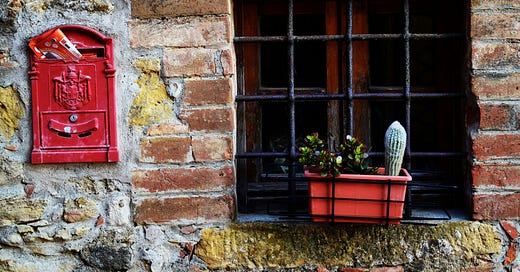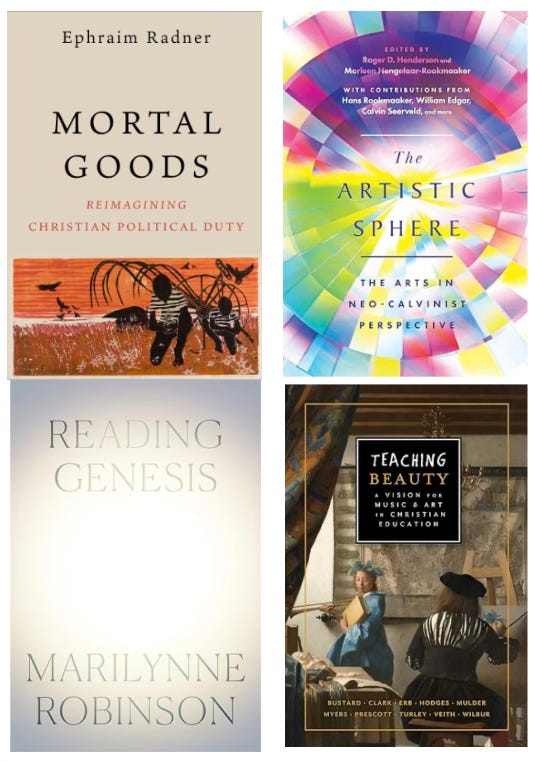Dear reader,
We are continuing to consider the Fruit of the Spirit in these monthly letters, with Joy following Love in Paul’s list.
To be honest, I have struggled with the command to be joyful. There has been a turn in recent theological work to criticize Western Christianity’s tendency towards a kind of happy-clappy faith that consists of praise songs to Jesus without adequate recognition of life’s sorrows and suffering. This criticism resonates with me, because even though my church’s worship culture is suffused with songs of lament, there also seems to be an almost automatic reaction to suffering that proclaims God’s providence in a way that precludes genuine grief. We are supposed to be joyful; God is sovereign; how can I therefore protest or grieve a sickness, an injury, a death?
Resistance to this kind of culture, however, has left me unsure of what it does mean to be joyful.
Last month, I attended a paper presentation that framed Wendell Berry and his character Andy Catlett as holy fools. The category of “holy fool” is one that we are less familiar with in modern Protestant culture, but foolishness in this instance is not the opposite of wisdom.* Instead, it is the quality of one who is perceived as mad, as crazy, because the way the fool lives is in contradiction to the values and structure of his culture. So Wendell Berry’s refusal to use a computer and his rejection of modern farming techniques are perceived as backwards, as a foolish and unrealistic way of life, because it rejects cultural values of progress, efficiency, and maximized production.
It struck me then that perhaps the one who lives joyfully also lives as a holy fool. To embrace joy can appear to be an extravagant posture that seems untenable and foolish in light of the world’s sorrow and injustice. Gaza, Ukraine, Sudan…at world-scale the suffering easily overwhelms, not to mention at the level of nations and communities. In response, our culture prizes outrage and anxiety, a fevered reaction that piles on shock and indignation. In the present moment, joy can feel out-of-touch with reality.
And yet, the holy fool recognizes that joy is the foundation of our very lives, because, as Emily Dickinson says of love, it is “anterior to Life— / Posterior to Death.” It is before the creation of the world in the joyful delight of the Trinitarian persons, and it is the final end of creation in our glorious communion with God. This reality is, and we are invited to simply receive it with delight. We cannot construct or manufacture anything about this reality, and neither can we construct or manufacture our own joy. We receive it, as we receive our own lives: as the good gift of the Father. He offers it to us, as he offered the Garden’s abundance to Adam and Eve.
Yet, fruit is also cultivated: we can prepare the conditions of our hearts to promote the growth of joy, despite difficult and challenging circumstances, or despite personal proclivities to be disgruntled and discouraged.
When the fruit of joy is cultivated and received, I wonder if it is only such a holy, joyful fool who can respond faithfully to all that is wrong in the world. Is it not the joyful one who can recognize the misshapenness of the world, with our contemporary culture of discontent, avarice, and despair? Is it not the joyful one who can envision the kind of life that will resist the way things are and hold that vision forth for those around her? And is it not the joyful one whose resistance will be sustained, enabling her to persevere through the pressures to give in to despair?
*for more reading on contemporary holy fools, check out the work of my brilliant friend Danielle, at https://danielleterceiro.substack.com/
The Bare Trees at Jas de Bouffan by Paul Cezanne, 1885-1886.
If any season is associated with joy, I think it must be spring. Last week, the daffodils began to reveal their blooms—a particular joy for me this year, both because we only got a small taste of Australian summer before plunging into Northeastern U.S. winter, and because what has been planted in our yard is a mystery to me.The daffodils have been the first to declare themselves, evoking delicious, exuberant joy. Yet today we woke up to snow on the ground–a reminder that a foretaste is not the full reality. The painting above, by Paul Cezanne, communicates this liminality of spring—such joyfully green grass, and yet the trees are still bare, the sky lightened but not yet bright with the summer sun.
This month’s reading:
Blessed are you, O Lord,
for you have nourished me from my youth
and you give food to all flesh.
Fill our hearts with joy and gladness
that we always have sufficiency in all things,
and may abound to every good work
in Christ Jesus our Lord;
through him be glory to you,
honor, might, majesty, and dominion,
forever and ever. Amen.
On the road with you,
Laura
Out and About
My children’s book is available for pre-order from the publisher directly at 10 of Those, or at various online book sellers. I Am will be released on May 5, 2025.
I’ve been hired as the Head of School for a new hybrid-model study center opening for the 2025-2026 school year. If you’re in the area and are interested for your children, or in tutoring opportunities, check us out!





